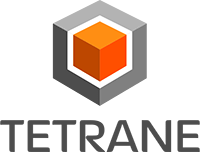Python API reference
Table of Contents
This is the end-user documentation for Reven API for the Python language.
Introduction
All API resides in the reven library:
import reven
The first step is to connect to an existing Reven instance, for example on port 13370 of the host localhost:
client = reven.reven_connection('localhost', 13370)
From there, all functions that permit to communicate with the Reven instance are accessible as members of client. For example, you can get the names of all runs using run_get_all():
for run_name in client.run_get_all():
print run_name
In this documentation, code examples assume that there is a valid variable client that corresponds to a reven_connection instance, as described above.
Naming conventions
Common names
Here are some names that are commonly used for naming services.
Prefixes
memory: services interacting with the Memory Management Unitstate: managing statesfilter: managing filtersengine: control Reven engine (eg. handling an execution)
Actions
get: retrieve specific data that does not alter a Reven instance (eg. instructions found in an arbitrary sequence)search: looking for data that matches criteria; does not alter a Reven instance (eg. look for data in memory)publish: reserved for services invoked by the server
Reference
- Python API - Services
- Python API - Objects
- Inspectors
- Memory check
- Scenario alteration
- Execution processing
